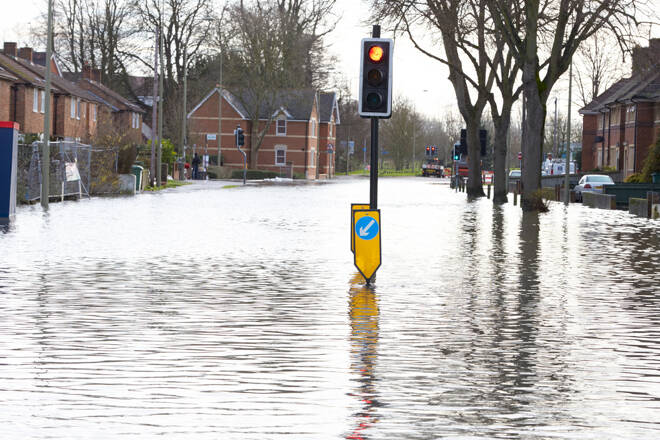Advertisement
Advertisement
Rising risks of climate extreme events can lead to greater sovereign ratings divergence in Europe
Published: Nov 7, 2021, 07:54 GMT+00:00
Some European countries are more exposed than others to the rising costs of extreme climate events, posing risks of sovereign ratings divergence unless mitigating investments and expanded institutional capacities responding to environmental risks are mobilised.
Extreme climate events constitute one of the main environmental challenges that governments face, with temperature extremes, heavy rains, floods and droughts all posing serious and, most likely, increasing risk to human life and economic activity in Europe. Natural disaster risks also constitute an important component of Scope’s assessment of a sovereign borrower’s environmental risk profile.
Economic losses from extreme climate events represent the main natural hazard risk for countries across Europe. Our study on outstanding effects of climate on sovereign credit ratings, published earlier this week, covers member countries of the European Environmental Agency (EEA), which comprises European Economic Area states plus Turkey.
Over 1980-2019, such natural-hazard events, including extreme temperatures, heavy rains and droughts, resulted in estimated economic costs of EUR 446bn (3% of 2019 GDP) in the EEA. Significant as this sum might appear, overall macroeconomic relevance of weather-related natural disasters over 1980-2019 was limited, although varying considerably across countries.
Lower-income countries do tend to record the highest climate-related economic consequences
Countries of central and eastern Europe such as Croatia, Romania, the Czech Republic, Bulgaria and Hungary were the most affected, with average annual economic losses from climate extremes over 1980-2019 from 0.11% to 0.15% of GDP, well above a 0.07% EEA average. Lower-income countries tended to record the highest costs from severe climate events.
In lieu of mitigating investments, these costs are expected to grow over the coming years although to varying degrees across Europe. In particular, southern European and central and eastern European countries are most exposed.
Adverse impact of extreme climate events will increasingly present a credit challenge as concerns sovereign ratings
While efforts to address changes in climate are accelerating across these regions, the adverse impact of extreme climate events will increasingly present a credit challenge for sovereign credit ratings as climate consequences become more severe and pervasive, potentially resulting in credit rating divergence.
Against this backdrop, it is crucial that governments mobilise resources and implement reform that reduces exposures to natural risks and enhances capacities to cope with climate extremes.
Recovery plans to date do not display natural-disaster risk necessarily influenced country EU fund allocations
EU leaders have agreed to earmark at least 37% of EU financing received under the Recovery and Resilience Facility while the European Commission has proposed that at least 25% of the EU’s 2021-27 multiannual budget be geared in direction of climate action.
However, recovery plans announced to date do not display that countries’ exposures to and historical costs from natural disasters necessarily influenced their allocations of regional recovery and resilience funding. The interaction between physical risks and political priorities at the national level remains limited overall.
European countries have begun including climate considerations under budgetary frameworks. The French government, as one example, published its first “green budget”, which identifies specific expenditures supporting the green transition and assesses spending damaging to the environment.
Still, more efforts are needed to bolster the environmental resilience of European economies and avoid potentially greater ratings divergence longer term.
Download Scope Ratings’ study.
Alvise Lennkh is the Deputy Head of Sovereign and Public Sector ratings at Scope Ratings GmbH. Thibault Vasse, Senior Analyst at Scope Ratings, co-wrote this commentary.
About the Author
Alvise Lennkh-Yunuscontributor
Alvise Lennkh-Yunus is Head of Scope’s Sovereign and Public Sector ratings team.
Advertisement
